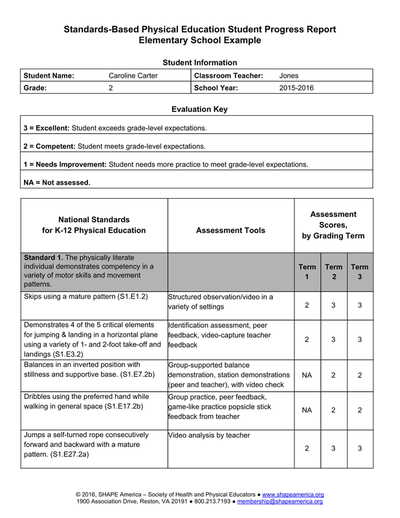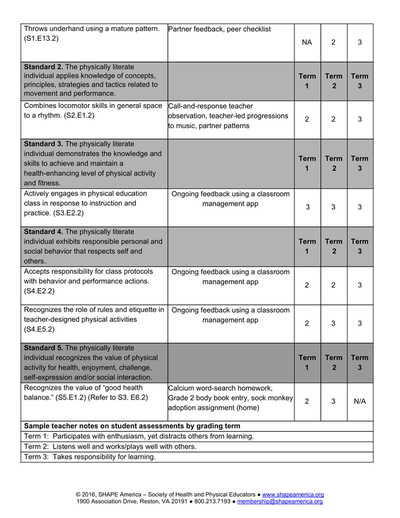Grading in Physical Education
|
Grading in Physical Education (Playlist)
|
Reflecting on Grading (Playlist)
|
SHAPE America Appropriate Practices
- 4.3.1 Physical educators use fitness assessment as part of the ongoing process of helping students understand, enjoy, improve and/or maintain their physical fitness and well-being, not for grading.
- 4.6.1 Grades are based on thoughtfully identified criteria that are aligned with course goals and national standards.
- 4.6.2 Students know the components of and criteria included in their grade, and the rationale behind each.
Inappropriate Grading Practices:
- "Dressing Out": this may be required in order to fully participate in lessons and therefore will already impact grades.
- Fitness Performance: fitness is largely determined by factors outside the control of the student and the teacher.
- Following Class Rules: this is required in order to fully participate in lessons and therefore will already impact grades.
- Improvement: students' physical growth/maturity can negatively impact performance; students can also "sandbag" the pretest (intentionally or unintentionally).
- Subjective Observations ("eyeballing"): this is not a reliable or accurate form of assessment; instead use rubrics to communicate how students will be assessed.

